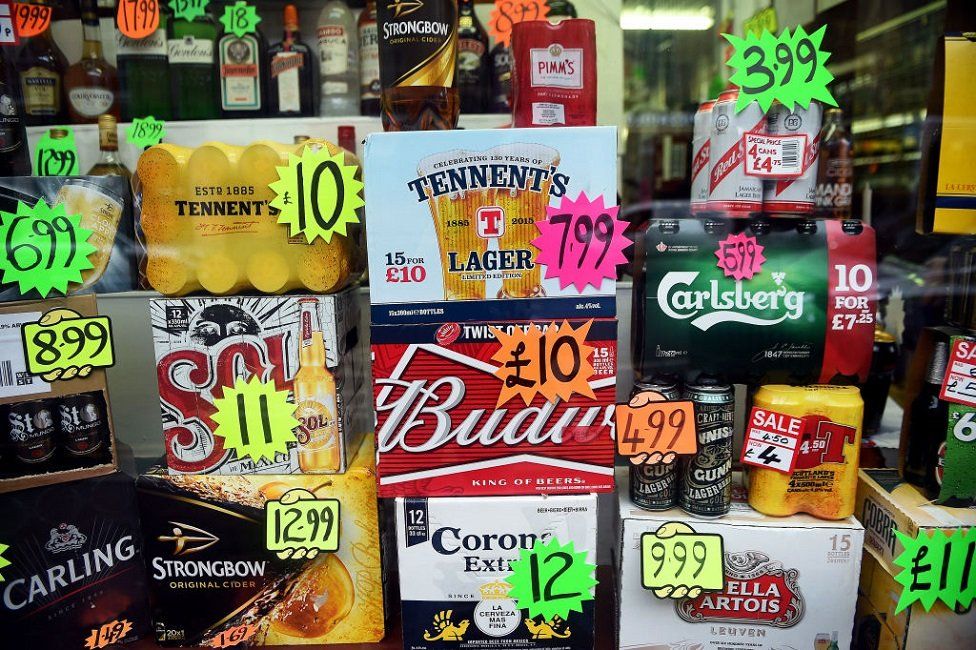By Dan O’Rourke
The government’s new pricing rules on low-cost alcohol took effect this week. The measure is a blunt instrument that will provide substantial profits to certain sectors of the drinks industry, while functioning as a vicious attack on poorer people. It is a gift to the vociferous pub and restaurant lobby, but fully in line with the class prejudices of the political establishment.
Price increases may lead to a decrease in average alcohol consumption, but will exclusively affect those consumers of low-cost alcohol, not consumers of alcohol in general. It’s as if the wealthier sections of Irish society are not involved in or affected by alcohol abuse.
The new legislation is based on similar legislation in Scotland. However, the price of alcohol in Scotland is currently much cheaper than in Ireland, even after its price increases, and the cost of living in Scotland generally is lower. Realistically, without investment in mental health, social welfare, youth resources and addiction services, those already suffering at the hands of the predatory alcohol industry will effectively be financially punished for having a health problem.
Businesses set to profit
Publicans and restaurateurs have been lobbying for years for a price hike under the false pretences of concern for heavy drinkers. Of course all they really care about is bringing those heavy drinkers into their own establishments, where they will happily supply them with their fill of alcohol while also ripping them off.
The publicans, through their lobbying group the Vintners Federation of Ireland, are able to wield an outsized influence on government policy decisions. This has been shown repeatedly through the premature opening of pubs during the pandemic, not to mention the substantial financial support from the state, while those in the live music arts and performance industry were essentially left to fend for themselves.
Notably, the price increases will not take the form of VAT and therefore contribute to the public exchequer, instead it will all be added to the profits of private retailers.
Large alcohol corporations such as Diageo are also set to benefit as their “premium” products are already priced above the new minimum amount, meaning they are likely to see an increase in sales as people will opt for the known brand product at the same price as the (former) budget option.
Causes of alcohol abuse
Alcohol problems in society are primarily caused by economic factors. Research shows a clear relationship between recession and an increase in problematic drinking. When people are struggling through a stressful financial situation, or in any sort of personal crisis, they often turn to alcohol as a relief or to escape. An increase in price is unlikely to deter those who find themselves in dire circumstances.
Compounding the issue is the fact that poorer people tend to suffer more harm from alcohol consumption, even when the rate of consumption is the same as those who don’t suffer from poverty. The vicious cycle of poverty and alcohol addiction will not be alleviated by implementing inhumane financial punishment on those who are already suffering.
The government has attempted to spin its legislation with the tired “someone please think of the children” PR tactic, by saying the legislation will bring alcohol above “pocket money” prices.
What is not being said, but is obvious to anyone, is that access to youth supports, services, clubs and amenities is the optimal way to tackle alcohol abuse among young people, not to mention overhauling the damagingly stressful leaving cert system. At the moment, youth services in Ireland are critically under-funded and overly reliant on unpaid volunteers. This bill includes a redundant measure to restrict alcohol branding on children’s clothing, but there is no mention of improvements to youth services.
It is also clear that there is a close link between mental health issues and alcohol, each one having a detrimental effect on the other. Without access to effective mental health services, people are more likely to self medicate through the use of alcohol.
Although the bill is titled “Public Health (Alcohol) Act 2018” there are only 20 mentions of ‘health’ in the main text of the almost 14,000 word document, and most of these are procedural mentions of ‘Minister for Health’ or ‘Health Service Executive’. There is no mention of mental health. This is just one indication of the low priority the government gives to public health.
What is needed
As corporate profits surge to astronomical heights off the labour of underpaid essential workers, it is an utter disgrace that this government is organising for another effective transfer of wealth from the poorest in society to greedy businesses, particularly under the pretence of concern for public health.
In order to truly tackle alcohol and drug addiction problems in Ireland, the root causes of poverty and mental illness must be dealt with. This can only be done if the profits of massive corporations, such as Diageo, are seized and invested in a one-tier, national public health service that is free at the point of use, with 24-hour counselling services readily available. Such a service could deal with addiction as a health problem, both physical and mental, not something to be profited from.












